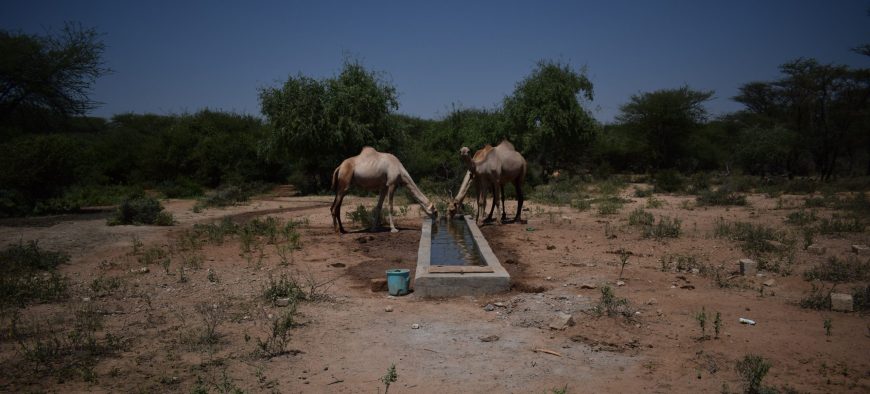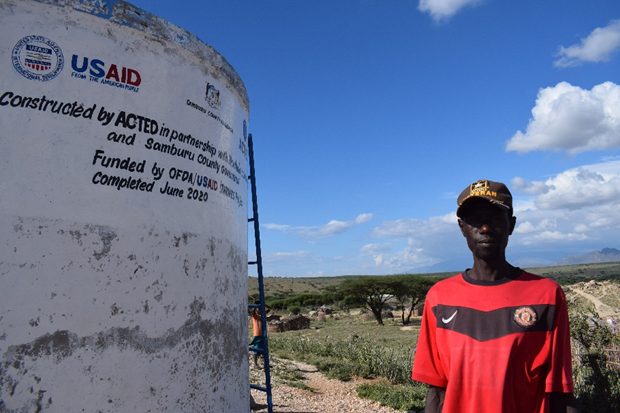In areas of northern Kenya, it is not uncommon to spend up to two hours a day walking to find a safe source of water.
As droughts and cyclical climatic shocks continue to force pastoral communities to march ever further to access water, many have turned to unsafe sources, leading directly to spikes in diseases like Diarrhea.
The need for investment in safe alternatives has never been so crucial. Thanks to the action of ACTED and its partners, over 4,000 people are no longer exposed to potentially life threatening diseases from consuming water from unsafe sources.
The Situation in Samburu County
Over half of the people living in Samburu County get their water from unsafe sources such as contaminated shallow wells and seasonal rivers. The contamination often stems from poor latrine access which leads communities to practice open defecation which then pollutes collective water sources. The situation is made worse by the fact that only one in ten people treat their water prior to consumption.
Restoration of Nachola Borehole
ACTED, working in partnership with the County Government of Samburu, rehabilitated the Nachola borehole which serves over 4,000 people but had previously fallen into disrepair and pushed the community members to use unsafe shallow wells for their water needs.
To minimize the environmental impact and long term costs of running the borehole, ACTED installed a hybrid energy efficient solar pump. An accompanying storage points also allows for the collection and distribution of water to key community water points such as health facilities and a local primary school. A concerted effort was also made to raise awareness locally on the kinds of good hygiene and sanitation practices which can prevent disease.
To sustain the borehole over the longer term ACTED in partnership with the local water department has trained a Water Management Committee (WMC) on disinfection and water asset management.

“Since we started using the water from the borehole, there have been no cases of diarrhea among the members of my family,” said Solomon, a father of five from Nachola.
“I can now easily access water at a price which is quite affordable compared to those from private vendors,” said Solomon.

This project is supported by the Bureau of Humanitarian Assistance (BHA) - USAID:
